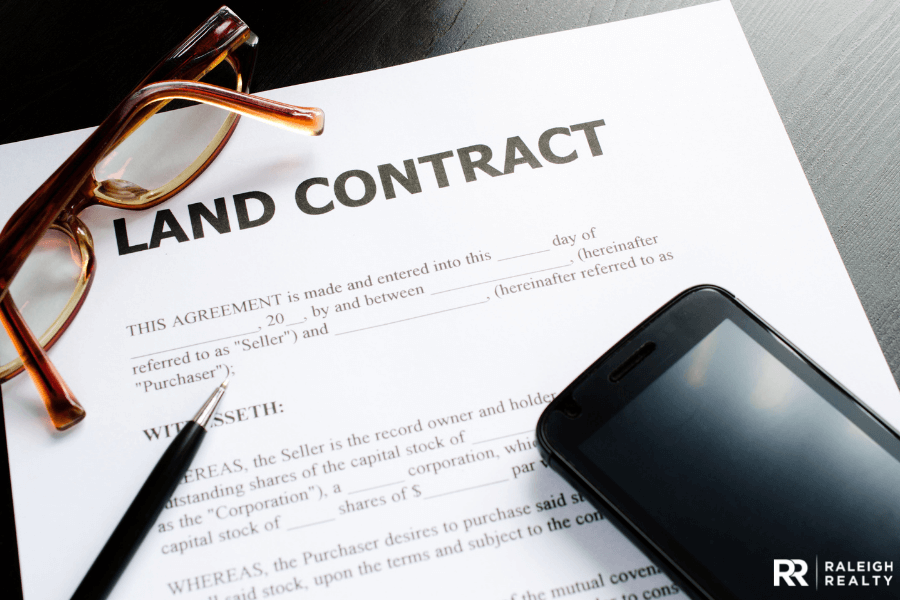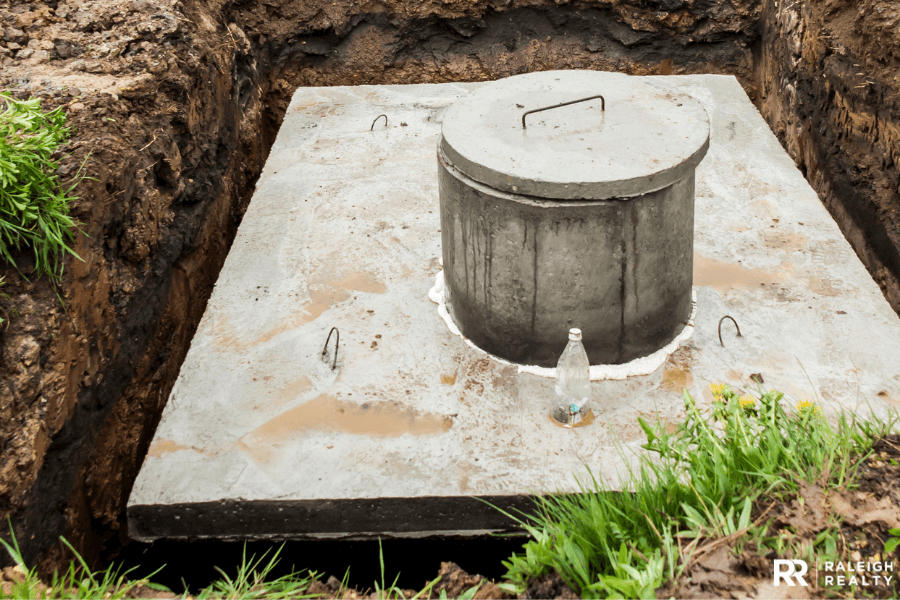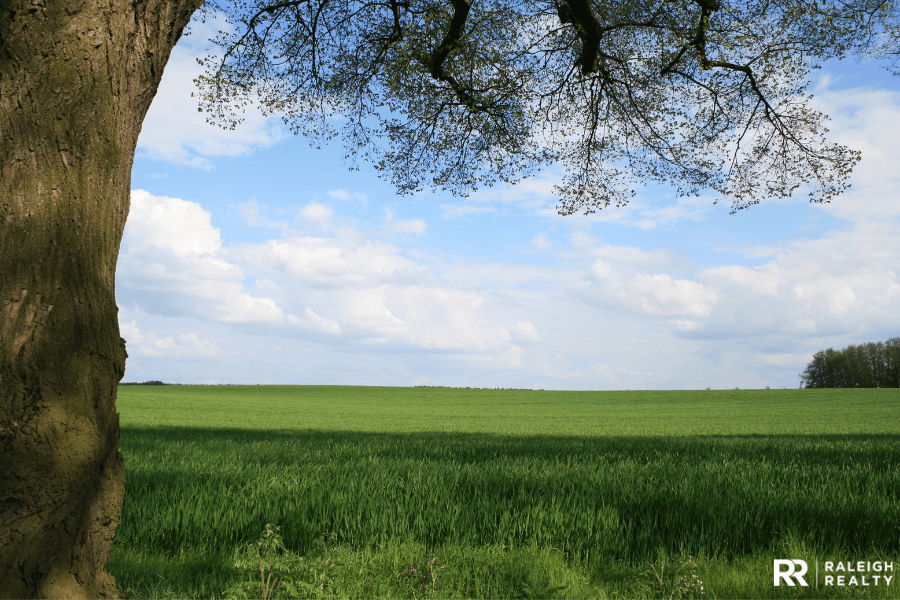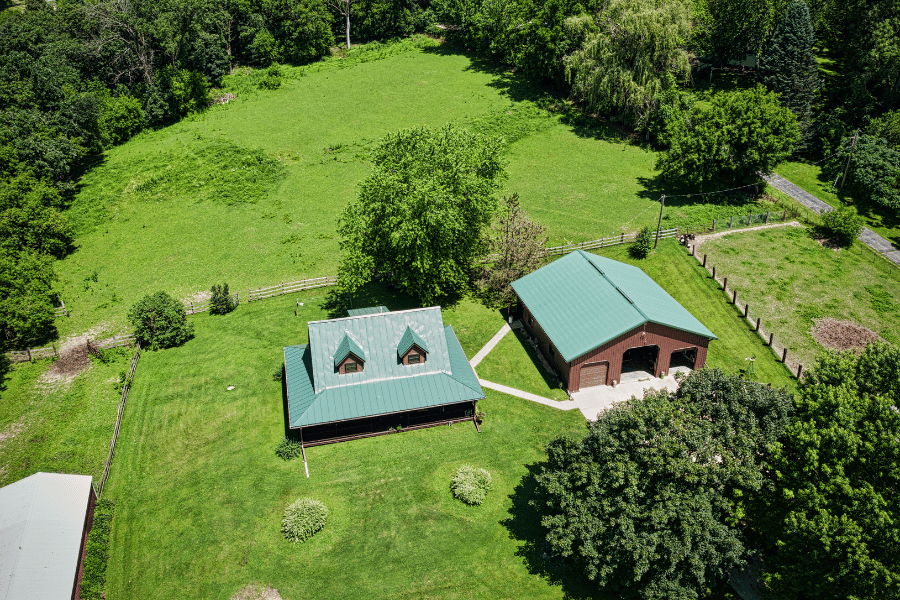The Complete Guide to Buying Land
Are you considering buying land? Here is everything you need to know about buying land and building on it.
Buying land can be one of the most rewarding investments you'll ever make, whether planning to build your dream home, start a business, or hold the property as a long-term investment. However, purchasing land significantly differs from buying a house and has unique challenges and considerations.
The truth is that buying land is not a simple process, and at times, it can feel more complex than buying a new home. But whether you want to know how to buy land and build a house or just how to buy land cheaply, this guide will help clarify the process.
At Raleigh Realty, we've helped countless clients navigate the land-buying process successfully. Here are 11 essential tips to help you make an informed decision and avoid costly mistakes.
Check out these top things to know about buying land
1. Define Your Purpose and Goals Before You Start
There are several steps to the process that you'll want to initiate before beginning to buy land. First consider what you want to use the land for. Are you planning to build a primary residence, vacation home, commercial property, or are you buying for investment purposes?
Your intended use will dramatically influence every other decision, from location and size to zoning requirements and budget. Consider factors like proximity to work, schools, amenities, and your lifestyle preferences.
Numerous generous loan options are available for specific groups. If you plan on financing your purchase with a loan, you'll want to be pre-approved. If you are buying with cash, you'll want proof of income to show the seller's agent.
2. Understand Down Payment Requirements and Financing Options
Unlike residential mortgages, land purchases typically require larger down payments and come with different financing terms.
Most lenders require 20-50% down for undeveloped land purchases, with improved lots (those with utilities) sometimes qualifying for lower down payments around 10-20%. The exact amount depends on factors like the land's development status, your credit score, and the lender's requirements.
Interest rates for land loans are also typically 1-3 percentage points higher than traditional mortgages, and loan terms are often shorter, ranging from 5-20 years rather than the standard 30-year mortgage.
In general, there are three kinds of land you can purchase, and this determines how much down is required, as each requires its kind of loan:
Raw Land Loan
Raw land is when there is no development: no sewers, electricity, or roads. This loan poses the most significant risk for banks, requiring the largest down payment and good credit.
The loan will often be considered commercial with stricter rules and comes due in 10 years, not 30. It is also essential to show the banks a robust development plan so that they feel like they are minimizing risk. While raw land is often much cheaper than more developed options, the loan options do not always make this the best choice.
Unimproved Land Loan
This is land with some development but not everything you need to support a home, like an electric or gas meter. A loan for unimproved land is not as risky for banks as for raw land, but the down payment and credit score requirements are still high.
Improved Land Loan
With land with full access to roads, electricity, and water, banks take on less risk and can offer significantly lower down payments, like 10-20%.
Once you've determined your budget, it's time to find your plot of land.

3. Research Zoning Laws and Building Restrictions
Zoning regulations determine what you can and cannot do with your land. Before making an offer, verify the property's zoning classification and understand all restrictions.
Common zoning types include residential, commercial, industrial, agricultural, and mixed-use. Each comes with specific rules about building types, sizes, setbacks from property lines, and permitted uses.
Don't assume you can build what you want just because the land is for sale. Check with the local planning department about building codes, height restrictions, architectural requirements, and any planned zoning changes.

4. Investigate Utilities and Infrastructure Access
One of the biggest cost factors in land development is bringing utilities to your property. Before purchasing, determine what utilities are available and what it will cost to connect them. Essential utilities include electricity, water, sewer, natural gas, and internet/telecommunications.
Contact local utility companies to get estimates for connection costs, which can range from a few thousand dollars to tens of thousands, depending on distance and terrain. If public water and sewer aren't available, you'll need to factor in the costs of drilling a well and installing a septic system, which can easily cost between $5,000 and $12,000.
5. Conduct Thorough Environmental Tests
Environmental issues can make land unbuildable or extremely expensive to develop. Essential environmental tests include soil composition analysis, percolation tests for septic systems, wetland delineation, and contamination testing.
Soil tests will reveal if the ground can support the type of structure you want to build and whether it's suitable for septic systems if needed. Consider hiring environmental consultants who specialize in your area, as they'll be familiar with local soil conditions, environmental regulations, and common issues in your region.

6. Get a Professional Land Survey
A professional survey is essential to verify property boundaries, identify easements, and locate any encroachments. Many land disputes arise from unclear boundaries, and what you think you're buying might not match the legal description.
A survey will also reveal any easements that might limit your use of the property, such as utility easements or rights-of-way for neighboring properties. Finding the property lines is essential when buying land to know precisely what you are purchasing.
7. Conduct a Comprehensive Title Search
A title search reveals the property's ownership history and any liens, encumbrances, or legal issues that might affect your ownership rights. A title search will also show easements, mineral rights, and any restrictions on the property's use.
Consider purchasing title insurance to protect against any title defects that might not be discovered during the initial search. While it's an additional cost, it can provide valuable protection against expensive legal challenges to your ownership.
8. Always Have a Thorough In-Person Visit
There is no better way to get to know what you are buying than walking through the physical property. This is an important step, and you'd be surprised how often it is left out.
You'll want to do this walk-through after the title check and the survey so you can personally investigate any findings. This will also give you a great idea of the location of your land and what is around it.

9. Understand Tax Implications and Ongoing Costs
Land ownership comes with ongoing costs beyond the purchase price. Property taxes vary significantly by location and can change if you develop the land or if surrounding areas are developed. Agricultural or forestry land often qualifies for reduced tax rates, but these benefits may be lost if you change the land's use.
If you are buying land as an investment, understand the tax implications of holding undeveloped land. Unlike rental properties, raw land does not generate income to offset other costs, and improvements to the land may not be immediately deductible.
Consult with a tax professional to understand how land ownership will affect your overall tax situation.
10. Negotiate Contingencies in Your Written Offer
Always submit your land purchase offer in writing and include appropriate contingencies to protect yourself during the due diligence period. Common contingencies for land purchases include financing approval, satisfactory completion of environmental testing, soil and percolation tests, survey results, and utility availability confirmation.
Unlike home purchases, land transactions often have longer contingency periods due to the complexity of the required inspections and tests. Don't be afraid to negotiate for adequate time to complete all necessary due diligence.
If the land is part of a larger development, you might want contingencies related to the completion of promised infrastructure improvements.

11. Work With Experienced Professionals
Land purchases involve numerous specialists, and working with experienced professionals can save you time, money, and headaches. Beyond a knowledgeable real estate agent, you'll likely need a land surveyor, environmental consultant, attorney familiar with real estate law, and potentially an engineer or architect if you're planning to build.
Choose professionals who regularly work in your target area, as local knowledge is invaluable. They'll understand regional soil conditions, common environmental issues, local regulations, and typical costs for various services. While professional fees add to your upfront costs, they often prevent much more expensive problems down the road.
Methodology
Data was sourced from Investopedia and U.S. News and World Report to determine how to buy land.
FAQs
How hard is it to get approved to buy land?
Buying land can be more challenging than buying a house since land loans often have stricter requirements than traditional mortgages.
Can I just buy a piece of land?
Yes, many people buy land with no intention of building on it. Buying land can be a great investment opportunitiy and it can also be purchased for recreation and lesiure or to protect natural resources.
What is the best way to buy land?
The best way to buy land is by either paying in cash or securing financing through a bank or credit union.
Ready to Start Your Land Search?
Buying land is a complex process that requires careful planning, thorough research, and patience. However, with the right preparation and professional guidance, it can be an incredibly rewarding investment that provides the foundation for your future plans.
While it can seem daunting at first, by practicing due diligence, doing all your research, and hiring the right experts, you can be confident that your purchase is in your best interests and meets your specifications.
There are many options for buying land with no or little money, giving millions this exciting opportunity. Even if you have just started saving, your dream of owning land could be closer than you think.
Contact the experts at Raleigh Realty today to discuss your land-buying goals and learn how we can help you find the perfect piece of property for your needs and budget.
Whether you are looking for a small lot to build your dream home or a larger lot for investment or development, we're here to guide you through the process and ensure you make an informed decision.




